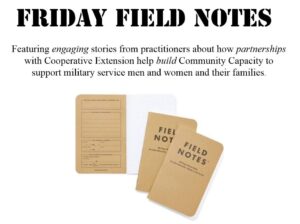
As we keep moving through this series that started as simply exploring how initiatives like Outdoor Rx can benefit military families, more resources and uses for nature-based therapy become apparent in the current literature. Because veterans are at a higher risk for suicide, last week we explored how NBT can be utilized as a preventative measure. Substance abuse disorders are another potential mental health issue facing veterans and active duty service members. There are some promising results using NBT to treat substance abuse disorders.
Overview of Substance Use Disorders
The National Center for PTSD reports that 1 in 10 veterans returning from the wars in Iraq and Afghanistan seen at the VA have problems with alcohol or other drugs. To further complicate the issue, PTSD and substance use disorders (SUD) are co-morbid, meaning they often occur together. More than 20% of veterans seeking help for PTSD also have a SUD, and about 1 in 3 veterans seeking help for SUD also have PTSD. What exactly does this mean? Well, it is somewhat of a “chicken or egg” scenario. It’s possible that veterans who have PTSD self-medicate leading to the diagnosis of a SUD. It’s also highly likely that having a SUD increases one’s risk of developing PTSD.

Either way, there are treatments that address both PTSD and SUD’s concurrently. Popular and effective treatments are cognitive behavioral therapy, eye movement desensitization and reprocess (EMDR) therapy, and prolonged exposure. However, one therapy that has not been empirically studied in depth for substance use disorders in veterans is nature-based therapy.
Current Literature on NBT for Substance Use Disorders
A study by Bennet et al. (1998) showed promising results for a group of adults in early recovery from a residential facility after participating in a 3-day therapeutic camping experience. Most notably, the researchers found significant decreases in autonomic arousal, frequency of negative thoughts, and alcohol craving in the experimental group. There was also a clinically significant improvement in recovery rates for those who participated in therapeutic camping versus those that did not.

Building on this research, Marchand et al. (2018) investigated the effect that sailing would have on veterans in residential SUD treatment programs. Classes were led by a US Sailing certified instructor and then the veterans participated once per month for three months in sailing activities. During this time, they were of course, in close proximity with other veterans as well as their therapists who participated in all activities. Preliminary results from the study indicated that sailing could increase the likelihood of veterans completing residential SUD treatment compared to the control group who did not participate in sailing.
But it is not only sailing that can produce positive results. Bowen et al. (2013) highlighted why they think this type of therapy is effective:
- Learning through experience
- Presence of, and interaction with nature
- Use of perceived risk to heighten arousal and to create a positive response to stress
- Solution-based focus on positive change
- Psychosocial and group processes
Specifically for veterans, researchers believe that any type of adventure therapy is beneficial when treating SUD as long as the client enjoys it (McKay, 2017). There is also a large body of evidence showing that strong therapeutic relationships between counselor and client lead to better outcomes (Simpson et al., 1997). So, having therapists sail with their clients was intentional for more beneficial outcomes.
Lastly, it has been reported that many veterans feel disconnected from community when transitioning from military to civilian life. Participating in enjoyable activities with other veterans provides a sense of community and familiarity that can have positive effects for those struggling with alcohol or other drugs.
Resources
Whether you are a service provider, a family member, or service member yourself, knowing the signs of substance use disorders and treatment options can go a long way. Browse through the resources below to learn more facts and ways to help.
Understanding PTSD and Substance Use (PDF)
Substance Use and Mental Health Services Administration
References
Bennett, L.W., Cardone, S., & Jarczyk, J. (1998). Effects of a therapeutic camping program on addiction recovery. The Algonquin Haymarket Relapse Prevention Program. Journal of Substance Abuse Treatment, 15(5). 469–474.
Bowen, D.J. & Neill, J.T. (2013). A meta-analysis of adventure therapy outcomes and moderators. The Open Psychology Journal, 6. 28–53. Doi: http://dx.doi.org.spot.lib.auburn.edu/10.2174/1874350120130802001
McKay, J.R. (2017). Making the hard work of recovery more attractive for those with substance use disorders. Addiction, 112(5). 751–757.
Simpson, D.D., Joe, G.W., Rowan-Szal, G.A., & Greener, J.M. (1997). Drug abuse treatment process components that improve retention. Journal of Substance Abuse Treatment, 14(6). 565–572.












